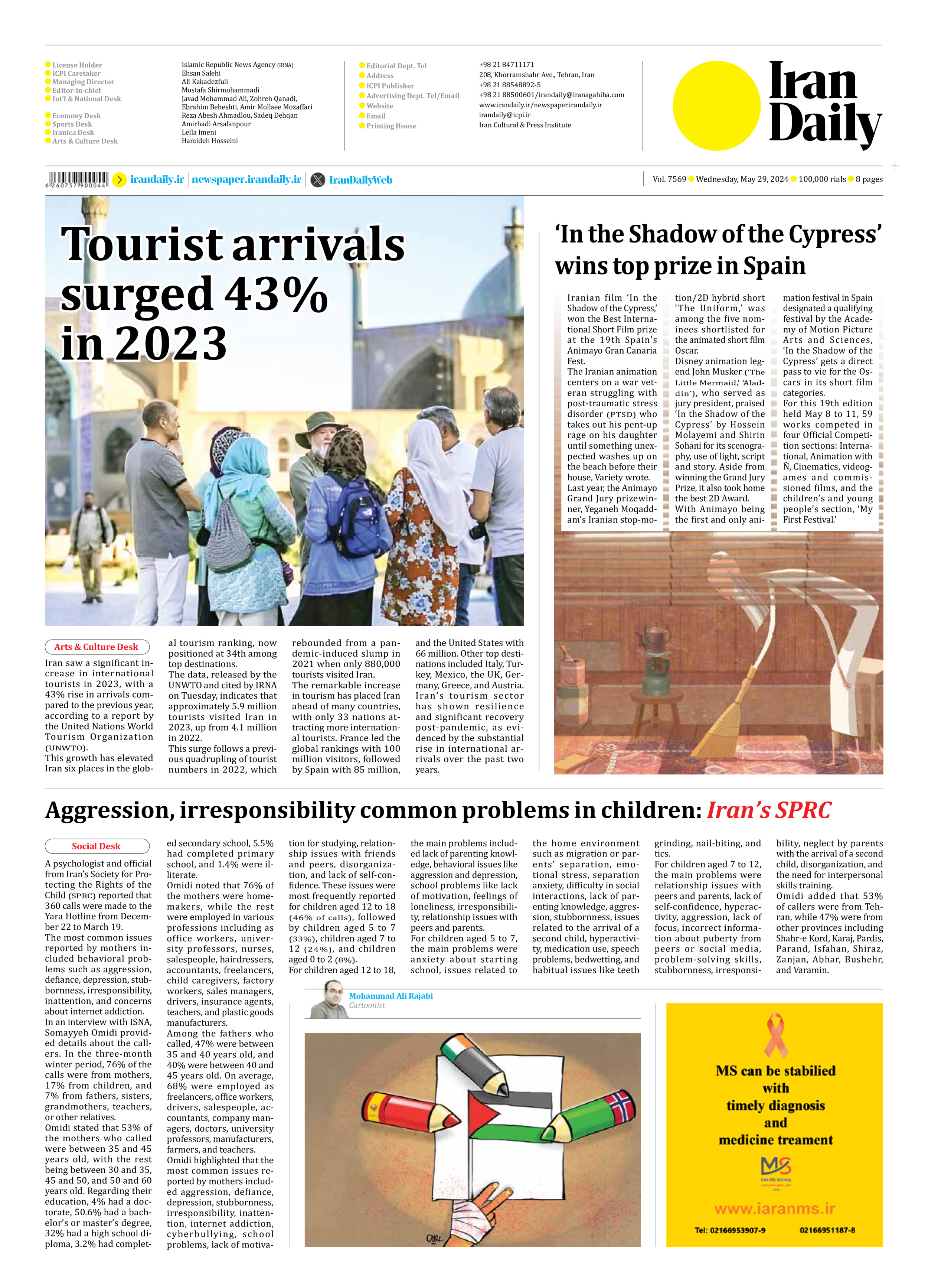
Copy in clipboard...
Aggression, irresponsibility common problems in children: Iran’s SPRC
The most common issues reported by mothers included behavioral problems such as aggression, defiance, depression, stubbornness, irresponsibility, inattention, and concerns about internet addiction.
In an interview with ISNA, Somayyeh Omidi provided details about the callers. In the three-month winter period, 76% of the calls were from mothers, 17% from children, and 7% from fathers, sisters, grandmothers, teachers, or other relatives.
Omidi stated that 53% of the mothers who called were between 35 and 45 years old, with the rest being between 30 and 35, 45 and 50, and 50 and 60 years old. Regarding their education, 4% had a doctorate, 50.6% had a bachelor’s or master’s degree, 32% had a high school diploma, 3.2% had completed secondary school, 5.5% had completed primary school, and 1.4% were illiterate.
Omidi noted that 76% of the mothers were homemakers, while the rest were employed in various professions including as office workers, university professors, nurses, salespeople, hairdressers, accountants, freelancers, child caregivers, factory workers, sales managers, drivers, insurance agents, teachers, and plastic goods manufacturers.
Among the fathers who called, 47% were between 35 and 40 years old, and 40% were between 40 and 45 years old. On average, 68% were employed as freelancers, office workers, drivers, salespeople, accountants, company managers, doctors, university professors, manufacturers, farmers, and teachers.
Omidi highlighted that the most common issues reported by mothers included aggression, defiance, depression, stubbornness, irresponsibility, inattention, internet addiction, cyberbullying, school problems, lack of motivation for studying, relationship issues with friends and peers, disorganization, and lack of self-confidence. These issues were most frequently reported for children aged 12 to 18 (46% of calls), followed by children aged 5 to 7 (33%), children aged 7 to 12 (24%), and children aged 0 to 2 (8%).
For children aged 12 to 18, the main problems included lack of parenting knowledge, behavioral issues like aggression and depression, school problems like lack of motivation, feelings of loneliness, irresponsibility, relationship issues with peers and parents.
For children aged 5 to 7, the main problems were anxiety about starting school, issues related to the home environment such as migration or parents’ separation, emotional stress, separation anxiety, difficulty in social interactions, lack of parenting knowledge, aggression, stubbornness, issues related to the arrival of a second child, hyperactivity, medication use, speech problems, bedwetting, and habitual issues like teeth grinding, nail-biting, and tics.
For children aged 7 to 12, the main problems were relationship issues with peers and parents, lack of self-confidence, hyperactivity, aggression, lack of focus, incorrect information about puberty from peers or social media, problem-solving skills, stubbornness, irresponsibility, neglect by parents with the arrival of a second child, disorganization, and the need for interpersonal skills training.
Omidi added that 53% of callers were from Tehran, while 47% were from other provinces including Shahr-e Kord, Karaj, Pardis, Parand, Isfahan, Shiraz, Zanjan, Abhar, Bushehr, and Varamin.







